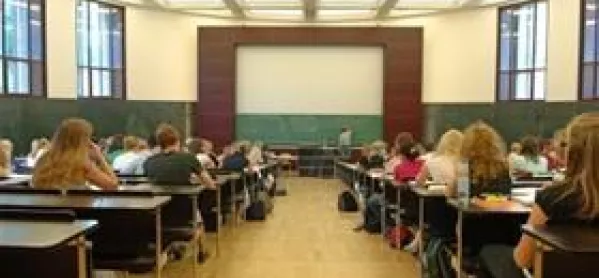Bac pass rates give A-levels run for their money

Supporters of the skills-led Welsh Baccalaureate said the qualification is finally proving itself as a viable and popular alternative to A-levels after the pass rate rocketed.
This year 80 per cent of students who completed the programme were awarded the advanced diploma, compared to 72 per cent last year.
The number of students entered for the advanced bac, currently equivalent to an A grade at A-level, almost doubled to 3,419 after it was rolled out to 52 schools and colleges.
Derec Stockley, director of examinations and assessment with the WJEC exam board, said the bac is proving popular to a widening range of pupils of different abilities and from different backgrounds, who are choosing it rather than academic alternatives. But he said that A-levels still have a future in Wales, and that it was important the country does not “diverge for the sake of diverging” when it comes to post-16 qualifications.
Teachers, union leaders and the higher education sector welcomed the results, which they said proved the bac has gained a wider acceptance. Anna Brychan, director of NAHT Cymru, said: “It took time to persuade parents and pupils of the benefits of the bac, but we are seeing the fruits of that now.”
Gareth Jones, secretary of ASCL Cymru, and Dr Philip Dixon, director of ATL Cymru, both said that many schools and colleges in England wish they could offer the Welsh bac instead of the English diploma. But while Dr Dixon said the Welsh bac is the way forward, Mr Jones said it would not replace traditional A-levels.
Dr Hywel Davies, head of admissions and recruitment at the University of Wales Aberystwyth, said the bac is proving an excellent preparation for HE.
“Students who achieve the advanced diploma bring with them to university a range of transferable skills and an ability to act as independent learners,” he said.
Meanwhile the pass rate for the traditional “gold-standard” remained the same as last year, with 97.6 per cent of the cohort gaining A to E grades.
The WJEC’s Derec Stockley suggested it may not be possible to get the pass rate any higher in future.
“I would think that it has almost reached the glass ceiling,” he said.
Many union leaders agreed, and said that politicians should now focus their efforts on widening the choice of courses available to students instead of pushing for higher pass rates.
Dr Dixon said: “If you had a 100 per cent pass rate it would look suspiciously like an old-style Soviet election - it would only feed the critics who say A-levels are getting easier.”
Rex Phillips, Wales organiser of the NASUWT, said: “I think that the politicians expect year-on-year rises and there’s always room for improvement. But some years, results will be higher than others. It’s a bit like record breaking in athletics - there’s always got to come a point where there can’t be any more improvement.”
The total A-level entry in Wales was up by 4.3 per cent to 38,433, and the proportion of A grades awarded in all subjects increased from 24.1 per cent to 25 per cent.
Students performed exceptionally well in chemistry, economics and maths, and results improved in French and German, despite the continued decline in the numbers taking the subjects.
Boys are also continuing to get better grades and narrow the attainment gap with the girls.
The number of entries from male candidates in Wales increased by 7 per cent, and the difference between boys and girls getting an A grade dropped from 4 per cent in 2008 to just 1 per cent this year.
Mr Stockley said it proves that schools and colleges are addressing the issue and finding ways to ensure all candidates get the results they deserve.
Keep reading for just £1 per month
You've reached your limit of free articles this month. Subscribe for £1 per month for three months and get:
- Unlimited access to all Tes magazine content
- Exclusive subscriber-only stories
- Award-winning email newsletters



